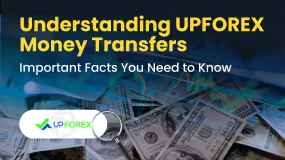Abstract:If you’re losing money in forex trading, you’re far from alone: data from major brokers show that approximately 70 % to 80 % of retail Forex traders end up losing money. This article explores the most common reasons behind trading losses and provides actionable strategies to help you turn your losing streak into a learning opportunity rather than a financial drain.

If you‘re losing money in forex trading, you’re far from alone: data from major brokers show that approximately 70 % to 80 % of retail Forex traders end up losing money. This article explores the most common reasons behind trading losses and provides actionable strategies to help you turn your losing streak into a learning opportunity rather than a financial drain.
Lack of Discipline and Plan
Trading without a clear, written plan or letting emotions dictate decisions is one of the top reasons for failure. Discipline ensures you stick to predefined entry, exit, and risk rules, preventing impulsive trades driven by fear or greed.
Overleveraging
Leverage—while a powerful tool—can magnify losses as dramatically as it amplifies gains. Overleveraging occurs when you take on positions too large relative to your capital, increasing the risk of a margin call or account wipeout. Experienced traders often cap leverage at conservative ratios to protect against market volatility.
Poor Risk Management
The biggest risks in Forex are volatility and leverage; unmanaged, both can inflict rapid losses. Key elements of proper risk management include limiting risk per trade (often to 1 %–2 % of account balance), using stop‑loss orders, and controlling position sizes.
Emotional Trading
Trading psychology plays a critical role in success. Without emotional regulation, even the best strategies can fail as fear, greed, and impatience override rational analysis. Understanding how emotions affect your decisions is the first step toward mastering them.
Actionable Steps to Turn Losses into Learning
1. Implement Robust Risk Management
- Set Stop‑Loss Orders: Always define your maximum tolerable loss before entering a trade.
- Limit Risk per Trade: Risk no more than 1 %–2 % of your account on any single position.
- Adjust Position Size: Scale your trade size according to market volatility to avoid outsized drawdowns.
2. Use Demo Accounts Wisely
Demo trading provides a risk-free environment to hone strategies, learn platform mechanics, and practice discipline. Use it to experiment with different setups, test stop‑loss placement, and build muscle memory, just as you would in live markets. WikiFX offers demo trading competitions, which are free to participate in and helpful for those traders who want to practice before joining real forex trading.
3. Develop and Follow a Trading Plan
A solid trading plan outlines your market analysis methods, entry/exit criteria, risk parameters, and daily routines. Treat Forex trading as a business: research markets thoroughly, set realistic goals, and review performance regularly.
4. Download WikiFX to find decent brokers
WikiFX contains details of more than 50,000 global forex brokers, which gives you a huge advantage when seeking the best forex brokers. If you want to know more information about the reliability of certain brokers, you can open our website (https://www.WikiFX.com/en).
Conclusion
Losing money in Forex trading is a rite of passage—what matters is how you respond. By recognizing the real odds, avoiding common pitfalls, and adopting disciplined, data-driven practices, you can shift from the majority of losing traders into the successful minority. With robust risk management, a solid trading plan, emotional control, and ongoing learning, youll turn every loss into an opportunity for growth.










